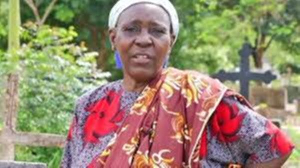A former Deputy Information Minister, Felix Kwakye Ofosu, has shed light on the reasons behind the UK court's decision to dismiss Ghana's appeal against a US$140 million judgment debt.
According to him, the Attorney General's absence in court, citing Ghana's elections and the COVID-19 pandemic, played a pivotal role in the court's ruling.
In an appearance on Good Morning Ghana show, Kwakye Ofosu expressed his concern, stating, "The Attorney General has made us lose $140 million due to petty political issues. It sounds funny but it is not. $140 million, especially for a country facing the economic challenges that we are, is a significant amount. We are currently seeking the next tranche of IMF extended rate facility, which is around $600 million. Yet, we have to allocate an additional $140 million in this already strained economy to pay off an entirely avoidable debt."
Kwakye Ofosu further criticized the Attorney General's decision not to appear in the UK court, stating, "The Attorney General, while the UK courts were in session for the hearing, was in Ghana claiming that there was an election. Did the Attorney General's office close down due to an election? What role was the Attorney General playing in an election? It was as though he was even contesting for a parliamentary seat. Even if he was, he had an obligation to defend the state."
He continued, "They cited elections and COVID as excuses, as if there was no COVID in the UK. The UK courts did not entertain these excuses and dismissed the case. Now, we are on the verge of losing some of our assets in the United Kingdom because Trafigura has attached those assets to offset the debts we owe them."
This development comes on the heels of a judgment debt claim by GPGC, a subsidiary of the international commodities company Trafigura. The company sued the Ghanaian government over the termination of two power deals, ultimately securing a US$140 million judgment debt awarded by a UK court.
The contention revolved around the method of serving the government with proceedings relating to the judgment debt claim. Ghana argued that, under existing laws, the government had to be served through diplomatic channels, in contrast to the alternative services used.
The UK High Court ruled against Ghana, stating that the State Immunity Act provisions, which Ghana invoked, were not a valid basis to prevent Trafigura from serving the judgment debt documents through post and email.
As a result of this ruling, Ghana now faces the risk of having its state properties in London seized by a Trafigura subsidiary to satisfy the US$140 million judgment debt.
Ghana’s leading digital news platform, GhanaWeb, in conjunction with the Korle-Bu Teaching Hospital, is embarking on an aggressive campaign which is geared towards ensuring that parliament passes comprehensive legislation to guide organ harvesting, organ donation, and organ transplantation in the country.
NAY/KPE
General News of Sunday, 29 October 2023
Source: www.ghanaweb.com

















